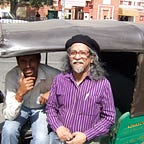Abiy Ahmed Ali- Nobelista
After the fiasco of the Nobel Prize for Literature being awarded to an apologist of genocide, Peter Handke, best known for his defence of Slobodan Milosevic the man who perpetrated massacres against Bosnian, Croatian and Kosovan peoples, the award of the Nobel Peace prize to Abiy Ahmed Ali somewhat redeemed the reputation of the institution.
Africa has always been under the thumb of European colonial masters, and when in the sixties one by one each country acquired its independence, there was rejoicing in large parts of the world. Sadly enemies of colonisation and lovers of Africa felt badly let down by the aftermath of the winds of change. The much revered Kwame Nkrumah proved unequal to the task, although mercifully he was not a spoliator of his country’s riches like many after him, Mobutu, Arap Moye among the most notorious. Most independent countries misused or mismanaged the great resources at their disposition and impoverished their countries. Democracy was thrown overboard and dictatorship came in. Many of the leaders died in exile with millions stashed away in Swiss banks, replaced by new leaders who promised to clean the stables, but ended up like their predecessors.
There were a few exceptions, the most spectacular being Julius Nyere of Tanzania. He was affectionately called Mwalimu, a Swahili appellation of respect meaning the Teacher. He governed with integrity, and to everyone’s surprise he voluntarily retired to his village when he felt it was time to pass on the baton to new bloods. The famous Pépé Mujica of Uruguay (of the battered Beetle car) must have been inspired by the Mwalimu. As we stand, there are a handful of African countries which are tentatively experimenting anew with democracy, and few changeovers brought about a leader of a different party or different ethnic group.
This is where Abiy Ahmed Ali comes in. Ethiopia was for a long time ruled by the ludicrous Haile Selassie, a man known for feeding his pet tigers expensive meats whilst the country starved under one of the worst famines the world had known. He was removed from power by a communist coup which did not work. The country had been precariously governed for a number of years by ineffective leaders, which meant that development was slow, and poverty kept spreading. With hundreds of ethnic groups and languages, it is obvious that harmony between the peoples was always going to be a big problem. There was almost always a movement somewhere in the country demanding independence or autonomy, and sadly Eritrea in the north, the only outlet to the sea, after years of fighting was allowed to secede. It was a bitter divorce and the relation between it and Addis Abeba was always poisonous and destructive, with border skirmishes an everyday occurrence.
Hailemariam Desalegn, President Ahmed’s immediate predecessor had already impressed with his attempts at building the economic structure of the country, left in tatters after a series of ineffective governments. The people were aware of his efforts but thought that progress was too slow, and they manifested their discontent and impatience. Against the common practice on the continent, Hailemariam did not send his troops to shut up his critics. He offered to resign and pass on the mantle to a new leader. In came this relatively unknown young man who had been an army intelligence officer. In a country where the orthodox Christians of the Ethiopian Church often found themselves at odds with the minority Muslim minority, it is quite possible that being an orthodox Christian with a Muslim name (which he owed to his Muslim father) was a trump card.
When he took power in April 2018, the country had already been showing signs of improvement, but Abiy Ahmed decided to build upon this. He decided to release political prisoners and has promised elections in 2020. What impressed his people was his dynamic approach to the problems of the country. He demonstrated loudly and clearly that the fratricidal wars with his neighbours was the single biggest enemy, and immediately appealed to the leaders of war torn Somalia, dirt poor Djibouti and resentful Eritrea to join him to solve the issues they had with each other. The autocratic President Afwerki of Eritrea was received with great pomp in Addis Ababa, and a peace treaty was signed, which signified open borders after almost 20 years of conflict. The peace is stuttering, but the first step has been made. Economically Ethiopia keeps advancing by leaps and bounds. From the third poorest country in the world, it is now the third fastest developing economy in the world, with poverty rate falling spectacularly.
It is hoped that not only will the country keep advancing, but that it will serve as an incentive to the many badly governed countries of the continent.
